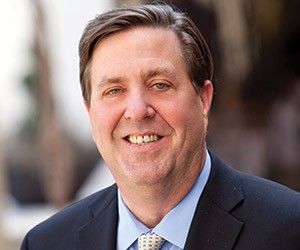Corporate events are coming back strong, but the rebounding economy has served as a double-edged sword pitting rising event funds against less-desperate lodgings.
Budgets are growing, yes, some venue choices are expanding, and top execs are signing off on some of the most ambitious event programs ever. Don’t break out the bubbly just yet, though. For many planners, 2014 was the busiest year ever and 2015 bookings look even stronger, but they don’t have time to celebrate as they are also faced with hotels having the upper hand in the supply-versus-demand landscape.
“The last six months have been a huge step forward,” says Sherry Parks, CEO of Corporate Planners Unlimited in Laguna Niguel, Calif. “Where I might have had a global company this time last year wondering if they should do a regional event, they are going global. Where they might have slimmed down by meeting in secondary cities, they are going for the top tier. Companies are making commitments for elaborate meetings like we have not seen in years. Instead of booking six and 12 months out, we’re booking two and three years; 2015 could be the best year we’ve had this century.”
Luxury is no longer a negative description. Lavish spectacle is still out of bounds, but definitions are shifting rapidly.
“We have a client who must reward employees,” says Jeff Adam, director of global accounts for HelmsBriscoe. “Caviar is an absolute necessity. But serving caviar on gold trays would be lavish and unacceptable. It is all about the nuance and the presentation.”
Eight or 10 years ago, opulent, over-the-top was expected, says Jim Schultenover, president of Associated Luxury Hotels International.
“Today, luxury has to serve a demonstrable purpose,” he remarks. “The way to meet growing expectations today is with an experience, a unique sense of place and purpose. Creating the right experience is key to the event’s success.”
The Bottom Line Rules
Credit for the recovery in corporate events goes to growing confidence across the business community that revenues and profits will continue to increase. Every leading economic indicator is positive, says Joe Bates, vice president of research at the Global Business Travel Association Foundation. Investment is rising, employment is rising, real incomes are rising, corporate sales are rising and corporate profits are rising. Corporate events must thus play into the theme of investment and ROI.
“What business executives relearned from the recession is that it really is all about the bottom line,” Parks says. “They are willing to invest in corporate events and they can afford to invest in corporate events. The only limit is your ability to demonstrate the return on that investment and the positive impact on the bottom line.”
The recession taught companies the importance of defining goals and measuring performance. That applies to meetings as much as it applies to sales, research and development, information technology or any other function.
“I would suggest that there is a ‘new normal’ or a refined responsibility that meeting planners and organizations demonstrate,” says Gerard Widder, general manager of the Island Hotel in Newport Beach, Calif. “Defining the desired outcome of a meeting or what success looks like regulates much of how budgets are decided and spent.”
The right ROI might justify almost any program, but it can be tough to maintain ROI as event costs climb. HelmsBriscoe’s Adam says event budgets are growing 3 percent to 5 percent annually. That’s good news, but not good enough.
Hotel prices are up 6 percent to 10 percent annually. Costs for food and beverage, audiovisual, technology and almost every other element of event planning and execution are also up.
“The problem is not that budgets are not growing, it’s that they are not growing in line with rate increases,” says Mike Dominguez, senior vice president of sales for MGM Resorts International. “Even though budgets are up, planners are still having to be evermore efficient with the resources they have available.”
Think of it as a recession hangover. When travel plummeted, hotels slashed rates and yields collapsed. Falling yields discouraged investment in new inventory. And because the lead time for new hotel space is so long, the industry has growing demand chasing limited supply.
PageBreakTom Faust, senior vice president of sales for Omni Hotels and Resorts, says meeting demand is up 7 percent for 2015 over 2014. The gap between demand and supply is great news for hoteliers, who are boosting rates to increase their own ROI. It’s not such great news for planners, who are trying to meet growing client demand for more and better meetings against a limited supply of sleeping rooms and meeting space.
“Demand is clearly outpacing supply,” Dominguez says. “We need more meeting space from January to May. We just can’t keep up. One result is that booking windows are expanding because clients are being told ‘no’ when they try to book.”
Flexibility Counts
Planners who haven’t yet booked must-hold events for this year are in trouble, Parks says. Planners looking to book 2016 events are seeing availability shrink almost by the day.
Don’t look for changes anytime soon. PKF Hospitality Research and Smith Travel Research are projecting more of the same through at least 2018.
“That says a seller’s market doesn’t have to be an adversarial situation,” Schultenover explains. “Planners and their clients who can adapt to hotels’ needs will do better at meeting their own goals than those who are less flexible.”
From the hotel side, adapting means planners providing better estimates for sleeping rooms, meeting and event space, F&B and other needs.
“Gone are the days when we guaranteed one-third of the anticipated groups,” Widder says. “We expect meeting planners to give accurate guarantees so that we can ensure that we deliver upon the service expectation.
“Decision dates are less flexible. There are people vying for our space,” he continues. “We certainly recognize repeat and loyal business partners, but won’t risk losing an alternative piece of business.”
From the planner side, adapting means considering alternative dates, facilities and amenities.
“Hotels are holding all the cards right now,” says Julie Hiett, corporate concierge and event planner for Corporate Travel Management Group. “Hotels are getting more selective in the business they accept. If your event traditionally books in on Tuesday and out on Friday, your hotel is probably pushing for in Monday, out Thursday. Planners are caught in the middle.”
Spend Selectively
Flexibility is the key to exceeding client expectations. Programs with Sunday arrival are particularly attractive because they fill traditional low occupancy nights, says Omni’s Faust. A shorter program can also be more attractive to hotels, and gives an advantage to clients that are already looking to trim event length.
Flexibility in food and beverage can also help keep the total spend in line. Dominguez says breakfasts and lunches are becoming more about nutrition and less about “wow.” Dinner is becoming the experience and excitement meal. Planners are also using more dinner receptions to limit spending with formal meals.
Parks says one of her techniques is to specify as much detail as possible. Instead of ordering for a steak dinner, she orders a five-ounce filet mignon to target spending where it brings the greatest visibility and return.
“I am very specific in my clients’ needs and my own sense of value,” she says. “You don’t buy rates, you don’t buy F&B, you buy the entire experience for your client. Buying on value takes more effort, but good value gives you a better return on your event than good price. It’s not about what you spend, it’s about how what you spend improves your client’s bottom line.”
Fred Gebhart is a longtime contributor who has covered everything from corporate to casual for Meetings Focus.






